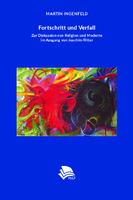Fortschritt und Verfall: Zur Diskussion von Religion und Moderne im Ausgang von Joachim Ritter
| dc.contributor.author | Ingenfeld, Martin | |
| dc.date.accessioned | 2016-12-21 00:00:00 | |
| dc.date.accessioned | 2020-04-01T13:53:43Z | |
| dc.date.available | 2020-04-01T13:53:43Z | |
| dc.date.issued | 2016 | |
| dc.identifier | 621504 | |
| dc.identifier | OCN: 982228594 | en_US |
| dc.identifier.uri | http://library.oapen.org/handle/20.500.12657/31940 | |
| dc.description.abstract | xamined in this study. Subsequently, section 4.2 analyzes Ritter’s involvement in debates concerning the concept of value as contested in particular by Carl Schmitt. Ritter supports the critique of the value concept philosophically but does not follow the political and politico-theological implications of Schmitt. Accordingly, authors like Lübbe and Böckenförde refer to the thought of Carl Schmitt in an explicitly liberalizing way. Aside from the discussion of the philosophy of value, this requires a closer look at the concept of Political Theology as it is subject of the debate of Schmitt and Hans Blumenberg. Section 4.3 eventually concentrates on the controversies concerning the concept of religion and its philosophical importance. Functionalism and substantialism are keywords in this discussion that within the group of Ritter’s former students is particularly associated with Robert Spaemann. His reasoning concerning Lübbe’s concept of religion indicates a farther-reaching critique of Ritter’s approach and modernity in general. All these aspects show that there are different ways of answering the tasks and questions Ritter formulated concerning philosophy, either positively in adoption of or negatively in distinction to his own approach. His theoretical ambivalences led the former students of his Collegium Philosophicum to develop various methods of differentiating his positions. Section 4.4 finally resumes aforementioned aspects in reference to post-war German debates on the question of religious presuppositions of liberal-democratic politics, particularly concerning Böckenförde’s notable insight that the liberal and secular state for its own sake relies on presuppositions it cannot guarantee. *** Mit dem gewachsenen Interesse für die Geistesgeschichte Nachkriegsdeutschlands und der Bundesrepublik hat auch der Name Joachim Ritter in den letzten Jahren verstärkt Beachtung gefunden. Zwischen 1946 und 1968 lehrte er Philosophie an der Universität Münster und beeinflusste als akademischer Lehrer durch sein Collegium Philosophicum eine ganze Reihe von namhaften Hochschullehrern und Intellektuellen. Diese Studie rekonstruiert zum einen die Entwicklung dieses Kreises. Insbesondere untersucht sie, wie Joachim Ritters Philosophie, sein Verständnis der modernen Welt und seine eigene intellektuelle Entwicklung in den Nachkriegsjahren bei seinen akademischen Schülern wirksam wurden, namentlich bei Hermann Lübbe und Odo Marquard, Robert Spaemann und Ernst-Wolfgang Böckenförde. Besonderes Augenmerk gilt zum anderen den religionstheoretischen und -politischen Überlegungen dieser Autoren, die sich, obwohl jeweils entscheidend von Ritter beeinflusst, doch deutlich voneinander abheben. Zur Erschließung dieser unterschiedlichen Perspektiven auf Moderne und Religion im Kontext der jungen Bundesrepublik – zwischen Fortschritt und Verfall – werden Bezüge zu Autoren wie Carl Schmitt und Hans Blumenberg aufgegriffen und nachgelassene Aufzeichnungen Joachim Ritters ausgewertet. Durch ihre offenen Anschlusspunkte ebenso wie durch ihre inhaltlichen Ambivalenzen, die zudem im zeitlichen Verlauf nicht unverändert blieben, erweist sich rückblickend die Fruchtbarkeit, mit der Ritters Philosophie die Auseinandersetzung mit der eigenen Gegenwart anzuregen vermochte, als sein maßgebliches Erbe. Martin Ingenfeld ist Politikwissenschaftler. Der Schwerpunkt seines Forschungsinteresses liegt im Bereich der politischen Theorie und Philosophie. Mit vorliegender Arbeit wurde er im Jahr 2015 an der Ludwig-Maximilians-Universität München promoviert." | |
| dc.language | German | |
| dc.subject.classification | thema EDItEUR::3 Time period qualifiers::3M c 1500 onwards to present day::3MP 20th century, c 1900 to c 1999::3MPQ Later 20th century c 1950 to c 1999 | en_US |
| dc.subject.classification | thema EDItEUR::N History and Archaeology::NH History | en_US |
| dc.subject.classification | thema EDItEUR::Q Philosophy and Religion::QD Philosophy | en_US |
| dc.subject.classification | thema EDItEUR::Q Philosophy and Religion::QD Philosophy::QDT Topics in philosophy::QDTJ Philosophy: metaphysics and ontology | en_US |
| dc.subject.classification | thema EDItEUR::Q Philosophy and Religion::QD Philosophy::QDT Topics in philosophy::QDTS Social and political philosophy | en_US |
| dc.subject.classification | thema EDItEUR::Q Philosophy and Religion::QR Religion and beliefs | en_US |
| dc.subject.other | politics | |
| dc.subject.other | modernism | |
| dc.subject.other | postwar germany | |
| dc.subject.other | religion | |
| dc.subject.other | history post-1945 | |
| dc.subject.other | Georg Wilhelm Friedrich Hegel | |
| dc.subject.other | Joachim Ritter | |
| dc.subject.other | Philosophie | |
| dc.subject.other | Ritter | |
| dc.title | Fortschritt und Verfall: Zur Diskussion von Religion und Moderne im Ausgang von Joachim Ritter | |
| dc.type | book | |
| oapen.identifier.doi | 10.16994/bae | |
| oapen.relation.isPublishedBy | a6e7b6f5-b321-4b99-bf66-dacbeb5d7daa | |
| oapen.relation.isbn | 9783946198154;9783946198130;9783946198147 | |
| oapen.pages | 468 | |
| oapen.place.publication | Cologne | |
| oapen.remark.public | Relevant Wikipedia pages: Georg Wilhelm Friedrich Hegel - https://de.wikipedia.org/wiki/Georg_Wilhelm_Friedrich_Hegel; Joachim Ritter - https://de.wikipedia.org/wiki/Joachim_Ritter; Moderne - https://de.wikipedia.org/wiki/Moderne; Philosophie - https://de.wikipedia.org/wiki/Philosophie; Religion - https://de.wikipedia.org/wiki/Religion; Ritter - https://de.wikipedia.org/wiki/Ritter | |
| oapen.identifier.ocn | 982228594 |

